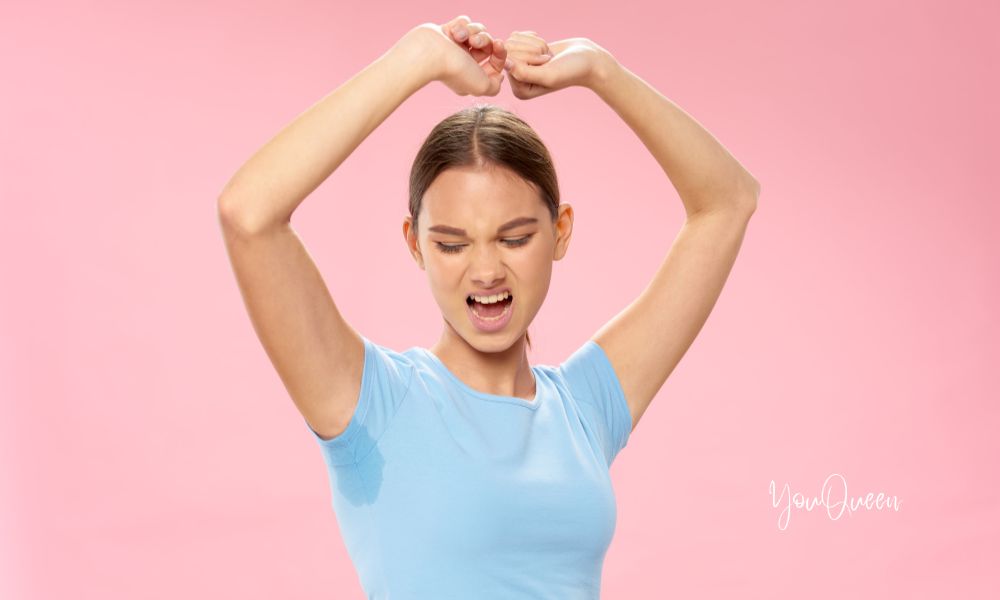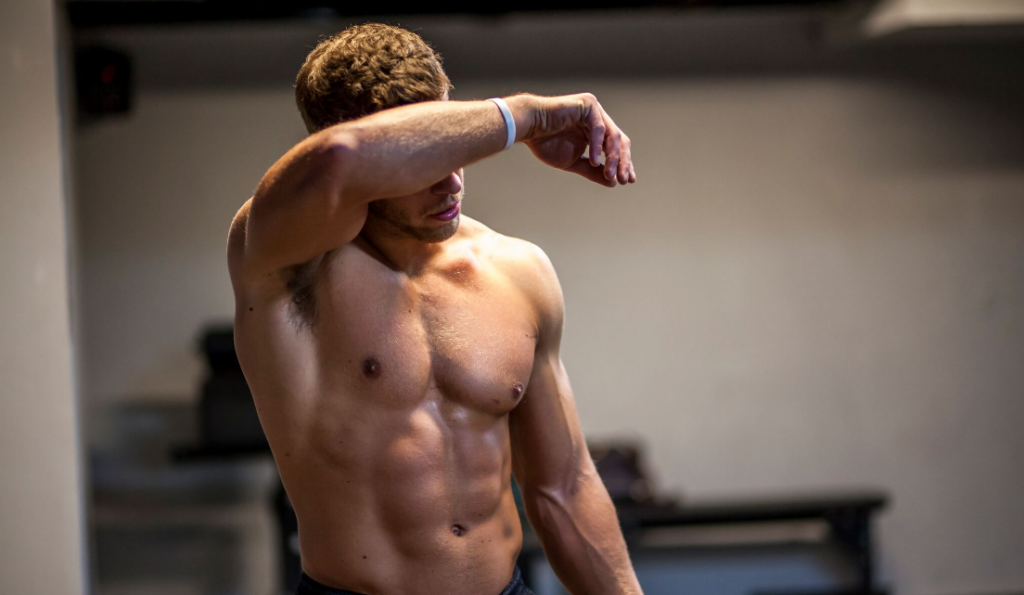Table Of Content
- Simple Hacks to Prevent Unwanted Boob Sweat
- Things you can do to help with excessive sweating
- Aims of the study
- Primary Hyperhidrosis:
- Is it normal for my head to sweat during sleep?
- Hair sample taking, preparation, extraction, and analysis
- I Sweat So Much That My Hair Gets Wet! (What Triggers Too Much Sweating?)

The nervous system automatically triggers sweat glands when your body temperature rises. Sweating also occurs, especially on your palms, when you're nervous. If you want to avoid shampoo, you can always rinse your hair with fresh water to flush out the sweat. Or, use a hydrating co-wash to cleanse your scalp without potentially irritating it.
Simple Hacks to Prevent Unwanted Boob Sweat
PSS is a self-reported questionnaire developed by Cohen et al.37. Significant correlation between hair cortisol and PSS was found in the current study, although after correcting for other confounders, PSS was not a significant predictor of hair cortisol levels. Inconsistent results regarding hair cortisol and PSS were found by researchers. Positive associations between PSS and hair cortisol level were found in a cross-sectional study on middle-aged women38, while negative associations were found in a collected database of community samples. The researcher suggested that the intensity of the stressor might have a great effect on the level of hair cortisol39. At the same time, Weckesser et al. found no association between hair cortisol and PSS, while they found a significant association with the weekly Hussle scale (once per week)43.
Things you can do to help with excessive sweating
If the sweating starts upon drug prescription, it could have triggered the excessive sweating. Most thyroid issues present themselves through excessive sweating. It mostly occurs in pregnant women since the hormonal changes may trigger excessive sweat production. Scientists have not succeeded in finding the cause of excessive sweating. You can further protect yourself by choosing a pillowcase that doesn’t retain moisture, like one made of silk or another moisture-wicking fabric.
Aims of the study
Hyperhidrosis refers to a condition commonly called excessive sweating. If the sweating occurs without an underlying health condition, it causes primary Hyperhidrosis. Sleeping with wet hair has been found to lead to hair damage, breakage, increased levels of dandruff, and potentially fungal growth. To understand why it’s not ideal to sleep with wet hair and what can happen if you do, we’ve talked to board-certified dermatologist Dr. Marisa Garshick and hair stylists Abby Haliti, Creighton Bowman, and Jenn Velez. It is typical for the face and head to sweat when a person feels hot. However, if sweating occurs for no apparent reason, this could be hyperhidrosis, or excessive sweating.
Primary Hyperhidrosis:
Comparisons between groups according to BMI and amount of sweating were done using Student t test and ANOVA, and their data were presented via bar charts, with the significant level set at 0.05 (p value ≤ 0.05). Bonferroni correction was made for multiple linear regression analysis. It means excessive sweating is not caused by a medical condition, physical activity, or increased temperature. “Wet hair is more fragile and prone to breakage, so tossing and turning during sleep can cause damage to the hair strands,” Haliti explains.
Sweating isn’t terrible yet a collection of the sweat on the scalp and making the hair oily can be awful. There is a portion of the amazing solutions for sound hair that you can attempt. In the event that you discover your hair feeling wet and sticky after some cardio or action, your scalp might sweat a great deal. Now, whenever your hair is oily, at that point in time attracts a ton of dust and dirt, if not scrubbed appropriately.
Hair sample taking, preparation, extraction, and analysis
Another reason why hair can sweat more is because it’s covered in a layer of dead skin cells. These cells can trap sweat and moisture, which can lead to bacteria growth and a bad smell. When you get too hot, your body produces sweat, which evaporates and cools you off. But for some people, sweating is more than just a way to cool down – it’s a constant problem.

I Sweat So Much That My Hair Gets Wet! (What Triggers Too Much Sweating?)
If you don’t want to wash your hair every day, there are a few things you can do to help keep it looking and smelling fresh. Try using a dry shampoo to absorb sweat and odor, and make sure to brush your hair regularly to help distribute the natural oils and keep it looking healthy. Studies found that hair treatments such as hair dyeing affect hair cortisol levels significantly and could give false low results12,14. In this study, we excluded individuals with dyed hair to remove the effect of this confounder. It is best to let your hair dry completely before going to sleep since sleeping with wet hair is not healthy for your hair strand or scalp.
Sweaty Vagina: 5 Tips to Reduce Groin Sweat - Health.com
Sweaty Vagina: 5 Tips to Reduce Groin Sweat.
Posted: Fri, 29 Dec 2023 08:00:00 GMT [source]
Wash Your Hair With an Anti-dandruff Shampoo
—scalp and I will be enjoying the rest of our summer together. In cases when symptoms do not respond to any other treatment, doctors may suggest medical procedures or surgery. Ever wondered why your head sweats after intense workouts or spicy meals?

Excessive sweating can happen for no obvious reason, because of another condition you may have, or as a side effect of a medicine you're taking. No one understands your skin better than a board-certified dermatologist. A few people who have alopecia areata lose all the hair on their body. When this happens, the disease is called alopecia universalis. Use these professionally produced online infographics, posters, and videos to help others find and prevent skin cancer.
Medication helps paralyze the sweat glands or lead to their normal functioning. Botox injections and surgery also prove helpful to counter the glands that secret this excessive sweat. Scientists believe it to be a genetic disorder where the sweat glands produce excess sweat even when not needed. Conditions like stress and anxiety serve as triggers for this condition. While many people who have hair loss develop one or more of these common signs, hair loss can occur in other ways. Free to everyone, these materials teach young people about common skin conditions, which can prevent misunderstanding and bullying.
They activate your sympathetic nervous system, increasing sweat production as a response to emotional stress. It’s important to consult a dermatologist to understand if they’re right for your skin type and the severity of your condition. These antiperspirants can be particularly effective for people with mild to moderate hyperhidrosis.











